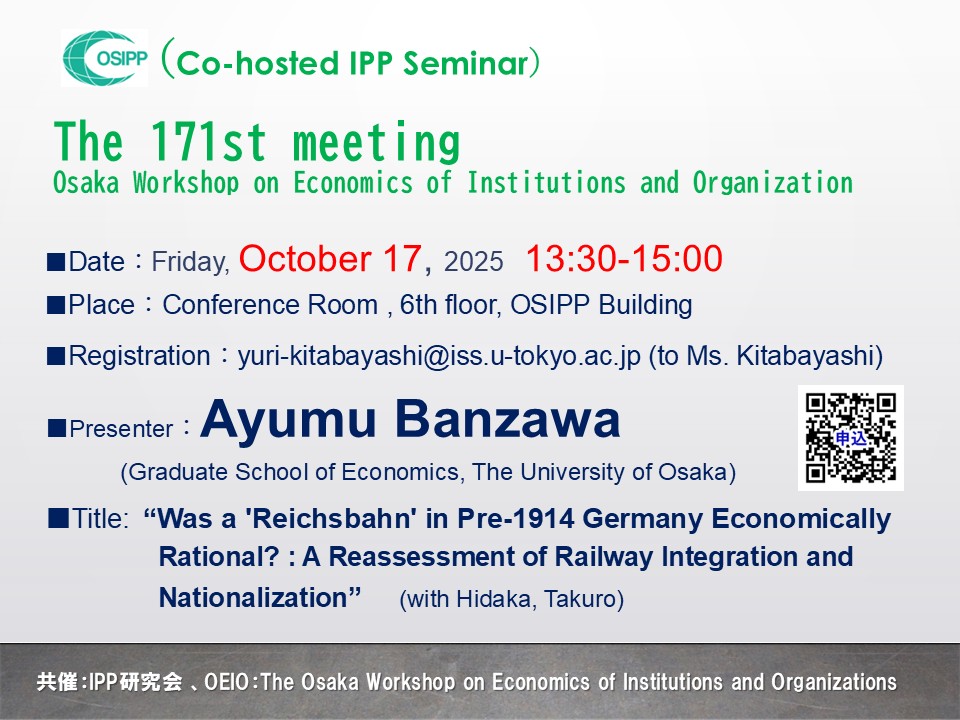
- Pre-book only
The 171st meeting jointly organized with International Public Policy Seminar
Intended for |
|
|---|---|
Date | 2025.10.17 Fri 13:30 - 15:00 |
Venue |
|
How to apply | Please contact Ms. Kitabayashi to the email address below |
Contact | Ms.Kitabayashi at the Institute of Social Science, The University of Tokyo |
The Osaka Workshop on Economics of Institutions and Organizations, OEIO, meets every month to exchange research ideas on institutional and organizational economics. Participants include both people specialized in theoretical research and those in empirical research. Topics of meetings might be about microeconomic theory, macroeconomic theory, or economic history..., whatever on institutional and organizational economics.
Presenter:Ayumu Banzawa
(Graduate School of Economics, The University of Osaka)
Title: "Was a 'Reichsbahn' in Pre-1914 Germany Economically Rational? : A Reassessment of Railway Integration and Nationalization" (with Hidaka, Takuro)
Abstract: We re-examine what may be termed a long-standing myth in the historiography of German railways—namely, the notion that the unification of the railway industry at the national level was the inevitable outcome of Germany’s railway development. We use quantitative analysis to assess whether the German Land (small and medium state)–owned railways in the 19th century required integration on the scale of a nation-state, as later realized under the German National Railway (Reichsbahn). For the period up to 1913, we apply Data Envelopment Analysis (DEA) and related indicators to trace the evolution of efficiency, which reveals improvements on the public side of operations. For each major variable under study (e.g., operating ratio and total factor productivity), we construct a “hypothetical national (-railway) series” aggregating the seven Land railways and employ a Bayesian Structural Time Series (BSTS) model to generate counterfactual forecasts for 1925–1930 under the continuation of pre-1913 trends. By comparing predictive distributions with actual outcomes, we estimate the probability that the forecasts would exceed the observed values. The analysis suggests that the postwar efficiency gains of the Reichsbahn were not the result of unification alone, but rather the product of large-scale organizational reforms and modernization undertaken under the conditions of defeat of the First World War. Thus, even if unification had occurred without the experience of defeat, it is unlikely that comparable rationalization effects would have been achieved.